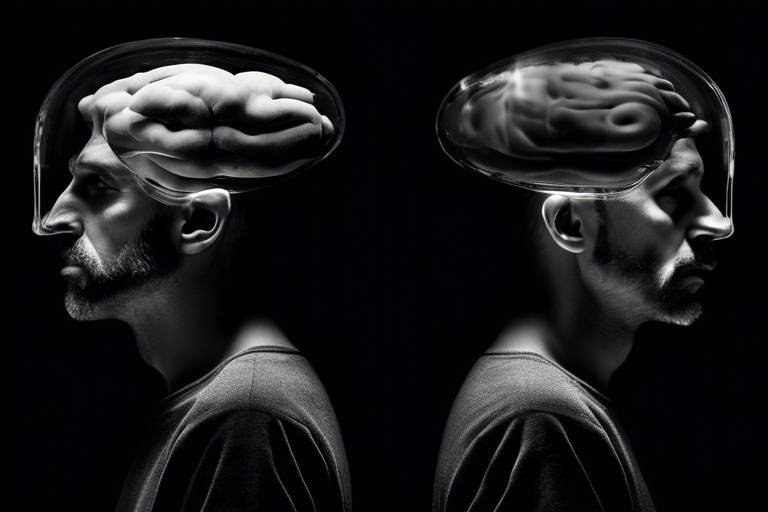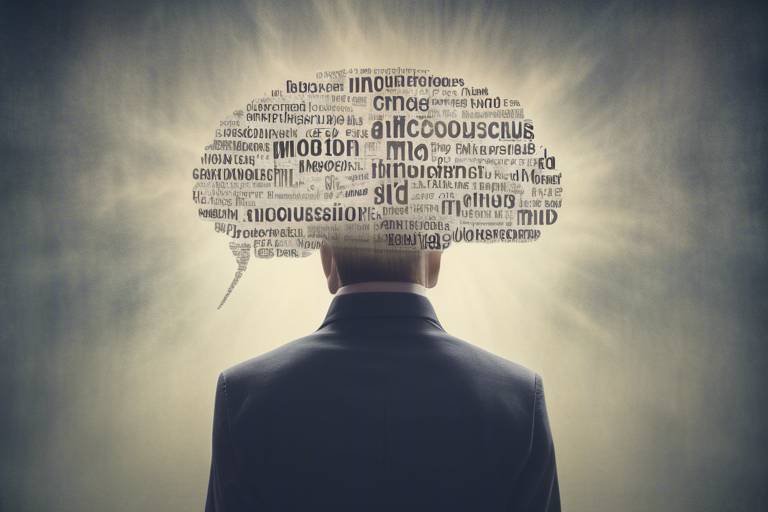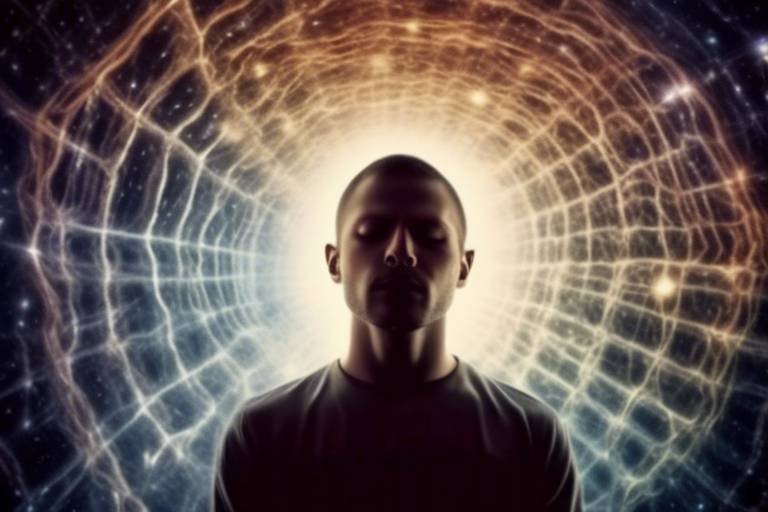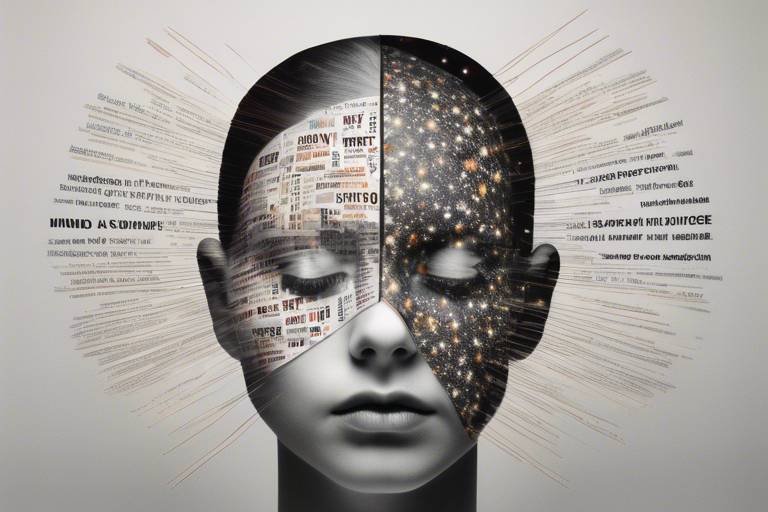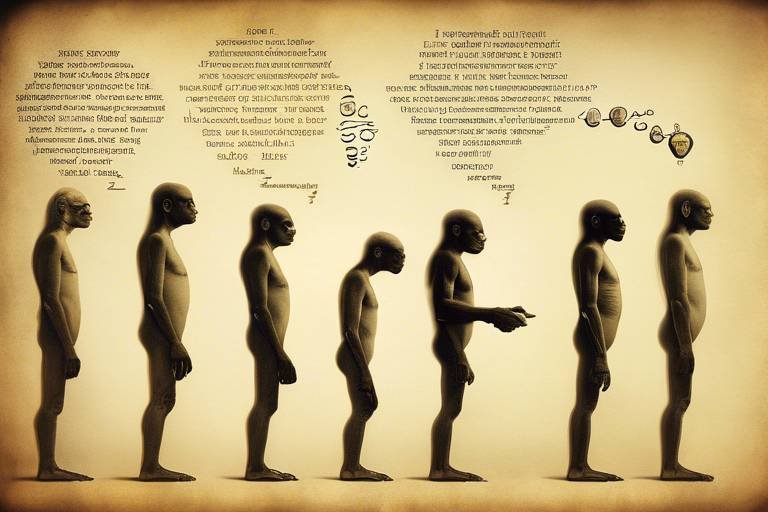A Deep Dive into Dualism in the Philosophy of Mind
Welcome to the fascinating world of dualism in the philosophy of mind! This intricate concept has intrigued thinkers for centuries, sparking debates and discussions that resonate even today. At its core, dualism posits a division between the mind and the body, suggesting that our mental experiences are fundamentally different from our physical existence. Imagine for a moment that your mind is like a software program running on a computer (your body); they interact, but they are distinctly separate entities. This article will take you on a journey through the historical roots of dualism, highlight key philosophers who have shaped its evolution, and explore its relevance in contemporary discussions about consciousness and the mind-body relationship.
As we delve into this topic, you'll discover that dualism is not just a relic of philosophical history; it's a living, breathing debate that intersects with various fields, from cognitive science to religion. Have you ever pondered what consciousness really is? Or how our thoughts can influence our physical state? These questions are at the heart of dualist thought, and they challenge us to consider the complexities of human existence. So, buckle up as we navigate through the layers of dualism, examining its implications and the critical voices that question its validity.
Throughout this article, we will address the historical background of dualism, the contributions of significant philosophers, and the different types of dualism that exist. We will also look at the arguments for and against dualism, the contemporary relevance of this philosophy, and its connections to religious beliefs. To top it all off, we'll explore real-world case studies that illustrate how dualist theories manifest in psychology and ethics. By the end of our exploration, you’ll have a deeper understanding of dualism and its place in the ongoing quest to unravel the mysteries of the mind.
Are you ready to dive deep into this philosophical ocean? Let's get started!
- What is dualism? Dualism is the philosophical concept that the mind and body are distinct and separable entities.
- Who are the key figures in dualism? Key figures include Plato, René Descartes, and Immanuel Kant, each contributing unique perspectives on the mind-body relationship.
- What are the types of dualism? The main types include substance dualism, which posits that the mind and body are made of different substances, and property dualism, which suggests that mental states are non-physical properties of the brain.
- What are some criticisms of dualism? Critics argue that dualism struggles to explain how the mind and body interact and point to advances in neuroscience that suggest a more integrated view of mind and body.
- How does dualism relate to religion? Many religious traditions support dualist views, particularly regarding the soul's existence apart from the body, impacting beliefs about life, death, and morality.

Historical Background of Dualism
The concept of dualism has a rich and intricate history that stretches back to ancient philosophical traditions. It fundamentally revolves around the distinction between the mind and the body, a theme that has captivated thinkers for centuries. One of the earliest proponents of this idea was the ancient Greek philosopher Plato, who posited that the soul is separate from the body and exists in a realm of forms that transcends the physical world. Plato's dualistic perspective laid the groundwork for future explorations into the nature of consciousness and existence.
Fast forward to the 17th century, and we encounter René Descartes, who is often dubbed the father of modern philosophy. Descartes famously declared, "Cogito, ergo sum" ("I think, therefore I am"), which encapsulates his belief in the primacy of the mind. His work Meditations on First Philosophy introduced the idea of substance dualism, where he argued that the mind (or soul) and the body are fundamentally different substances. According to Descartes, the mind is non-physical and does not obey the laws of physics, while the body is physical and subject to those laws. This radical separation raised profound questions about how these two distinct entities interact, a dilemma that still perplexes philosophers today.
Throughout history, various philosophical traditions have grappled with the implications of dualism. For instance, in the Eastern philosophical context, concepts similar to dualism can be found in the teachings of Buddhism and Hinduism, where the soul or consciousness is often seen as distinct from the material body. Such beliefs highlight the universal nature of the mind-body distinction across cultures.
Moreover, the Enlightenment era brought about a surge of interest in the relationship between mind and body, leading to debates that remain relevant today. Philosophers like Immanuel Kant also contributed to this discourse by suggesting that while we can never know the "thing-in-itself," we can understand phenomena through our perceptions, which are deeply influenced by both mental and physical states.
In summary, the historical background of dualism is a tapestry woven from the thoughts of ancient philosophers to contemporary thinkers. Its evolution reflects humanity's ongoing quest to understand the complex interplay between mind and body. As we delve deeper into this philosophical inquiry, we uncover layers of meaning that continue to challenge and inspire us.

Key Philosophers and Their Contributions
When diving into the rich tapestry of dualism, it's impossible to overlook the profound contributions made by key philosophers throughout history. These thinkers have shaped our understanding of the mind-body relationship, each adding unique perspectives that have sparked ongoing debates. Let's take a closer look at some of these pivotal figures and their groundbreaking ideas.
René Descartes is perhaps the most famous advocate of dualism. In the 17th century, he proposed the idea that the mind and body are fundamentally different substances. Descartes famously stated, "Cogito, ergo sum" ("I think, therefore I am"), emphasizing the primacy of thought and consciousness. He argued that while the body is a physical entity governed by the laws of nature, the mind is a non-physical entity that interacts with the body but exists independently. This radical notion set the stage for future discussions on the nature of consciousness and the self.
Another key figure, Immanuel Kant, contributed significantly to dualism through his distinction between the noumenal and phenomenal worlds. Kant suggested that our understanding of reality is shaped by our perceptions, which are influenced by both the mind and the external world. He argued that while we can never truly know the "thing-in-itself" (the noumenon), our experiences (the phenomenon) are filtered through our mental faculties. This perspective adds a layer of complexity to the dualist framework, suggesting that the mind plays an active role in interpreting reality.
Fast forward to the 20th century, and we encounter the work of David Chalmers, who reignited interest in dualism with his concept of the "hard problem of consciousness." Chalmers posits that while we can explain many aspects of brain function through neuroscience, the subjective experience of consciousness remains elusive. He argues that understanding why and how we have experiences—what it's like to feel joy or pain—cannot be fully explained through physical processes alone. This has led to renewed discussions about the viability of dualist perspectives in light of contemporary science.
In addition to these prominent figures, there are others who have contributed to dualist thought in various ways. For instance, Gilbert Ryle critiqued the dualist perspective by coining the term "the ghost in the machine," arguing against the separation of mind and body. His work highlights the importance of examining language and behavior in understanding mental states, challenging the traditional dualist view. Meanwhile, philosophers like Thomas Nagel have explored the subjective nature of experience, further complicating the dualist narrative by emphasizing the need for a comprehensive understanding of consciousness that bridges the gap between the physical and the mental.
To summarize, the contributions of these philosophers have laid the groundwork for ongoing discussions about dualism. Their diverse perspectives offer a rich landscape for exploring the complexities of the mind-body relationship. Here’s a brief overview of their contributions:
| Philosopher | Key Contribution |
|---|---|
| René Descartes | Proposed the separation of mind and body; introduced the concept of substance dualism. |
| Immanuel Kant | Distinguished between noumenal and phenomenal worlds, emphasizing the mind's role in perception. |
| David Chalmers | Introduced the "hard problem of consciousness," highlighting the gap between physical processes and subjective experience. |
| Gilbert Ryle | Critiqued dualism with "the ghost in the machine," emphasizing behavior over separation of mind and body. |
| Thomas Nagel | Explored the subjective nature of experience, challenging traditional dualist views. |
As we can see, dualism is a multifaceted concept shaped by various philosophical insights. Each thinker adds a unique thread to the fabric of dualist thought, making it a vibrant area of exploration in the philosophy of mind.
- What is dualism? Dualism is the philosophical concept that the mind and body are distinct and separate entities.
- Who is the most famous dualist philosopher? René Descartes is often regarded as the most prominent advocate of dualism.
- What is the "hard problem of consciousness"? This term, coined by David Chalmers, refers to the difficulty of explaining why and how we have subjective experiences.
- How does dualism relate to modern science? Dualism remains a topic of debate, especially in discussions about consciousness and artificial intelligence.

Types of Dualism
When diving into the concept of dualism, it's essential to recognize that it is not a one-size-fits-all idea. Instead, it encompasses various interpretations that have evolved over time, each with its own philosophical implications. The two primary types of dualism that often come up in discussions are substance dualism and property dualism.
Substance dualism is perhaps the most well-known form, largely attributed to the influential philosopher René Descartes. He argued that the mind and body are fundamentally different substances. The mind, or soul, is non-physical and cannot be reduced to the physical processes of the brain. This perspective leads to the idea that mental phenomena are distinct and cannot be fully explained by physical laws. Imagine a computer and the software it runs; the hardware (computer) may be vital, but the software (mind) operates on a different level, suggesting a separation that substance dualism emphasizes.
On the other hand, property dualism presents a slightly different angle. Instead of asserting that the mind and body are entirely separate substances, property dualism posits that while there is only one type of substance (usually physical), this substance can have two different kinds of properties: physical and mental. In this view, mental states emerge from physical states but are not reducible to them. For example, consider water and its properties: it can exist as ice (solid), liquid, or steam (gas), yet it remains H2O. Similarly, property dualism suggests that mental properties arise from physical substrates but maintain their unique characteristics.
To further illustrate these concepts, consider the following table that summarizes the key differences between substance dualism and property dualism:
| Aspect | Substance Dualism | Property Dualism |
|---|---|---|
| Nature of Existence | Two distinct substances: mind and body | One substance with two properties |
| Origin of Mental States | Mind exists independently of the body | Mental states emerge from physical processes |
| Philosophical Implications | Challenges in explaining interaction | Focus on the relationship between mental and physical properties |
Both types of dualism raise important questions about the nature of consciousness and how we understand the mind-body relationship. For instance, if the mind is entirely separate from the body, how do they interact? This is known as the interaction problem, a significant critique of substance dualism. Conversely, property dualism faces its challenges, particularly regarding how mental properties arise from physical processes without being reducible to them.
In summary, understanding the types of dualism is crucial for grasping the larger philosophical discussions surrounding the mind and body. Each perspective offers unique insights and challenges that continue to shape debates in philosophy, neuroscience, and even artificial intelligence.

Arguments for Dualism
When diving into the fascinating world of dualism, one can't help but wonder: what makes this philosophy so compelling? Proponents of dualism argue that there are significant distinctions between the mind and the body that cannot be overlooked. One of the most persuasive arguments is the introspective argument. This perspective suggests that our subjective experiences—our thoughts, feelings, and perceptions—are fundamentally different from the physical processes occurring in our bodies. Think about it: when you feel joy or sadness, you're experiencing something that doesn't seem to have a physical counterpart. This leads to the question: how can purely physical processes account for such rich, qualitative experiences?
Another key argument in favor of dualism is the challenge of explaining consciousness through purely physical means. Neuroscience has made incredible strides in understanding the brain, yet the essence of consciousness—why and how we are aware of our experiences—remains elusive. Proponents argue that if consciousness were solely a byproduct of brain activity, we would expect to have a complete understanding of it by now. Instead, the more we learn, the more complex the question becomes. This mystery suggests that perhaps consciousness is not just a physical phenomenon but something more profound, hinting at a dualistic interpretation.
Moreover, dualists often point to the phenomenal properties of mental states, which are difficult to explain in physical terms. For instance, consider the experience of tasting chocolate. While we can describe the chemical reactions and brain activity involved, the actual sensation of savoring chocolate—the taste, the aroma, the texture—is a unique experience that seems to transcend physical explanation. This leads to a broader understanding of the mind as a distinct entity that interacts with the physical body but is not entirely reducible to it.
Additionally, the existence of mental causation plays a crucial role in the argument for dualism. Our thoughts can lead to physical actions—like deciding to raise your hand or speak. How can a non-physical mind influence a physical body? This question poses a significant challenge to purely physicalist accounts of human behavior. If the mind and body were the same substance, how could an idea in the mind produce a tangible action in the world? This interaction suggests a deeper relationship that dualism seeks to explain.
In summary, the arguments for dualism highlight the complexities of consciousness and the mind-body relationship. By emphasizing the unique aspects of mental experiences, the challenges of explaining consciousness through physical processes, and the phenomenon of mental causation, dualists provide compelling reasons to consider the mind and body as distinct entities. As we continue to explore these ideas, it becomes evident that dualism offers a rich framework for understanding the depths of human experience.
- What is dualism? Dualism is the philosophical view that the mind and body are fundamentally different substances, with the mind being non-physical and the body being physical.
- Who are the key figures in dualist philosophy? Notable philosophers include René Descartes, who famously stated "Cogito, ergo sum" (I think, therefore I am), and Immanuel Kant, who contributed significantly to discussions on the nature of consciousness and perception.
- How does dualism relate to modern science? While neuroscience offers insights into brain functions, dualism raises important questions about the nature of consciousness that science has yet to fully address.
- Are there criticisms of dualism? Yes, critics argue that dualism struggles to explain how the mind and body interact and that advances in neuroscience suggest a more integrated view of mind and body.

Critiques of Dualism
The concept of dualism, while rich and historically significant, is not without its challenges. Critics of dualism present a variety of arguments that question the validity and practicality of separating the mind from the body. One of the most prominent critiques is known as the interaction problem. This issue arises from the question: if the mind and body are distinct entities, how do they interact? For instance, when you decide to move your arm, how does that mental decision translate into physical action? This conundrum leaves many philosophers scratching their heads, as it seems implausible for two fundamentally different substances to influence each other without some form of bridge or connection.
Another significant critique comes from advancements in neuroscience. As our understanding of the brain deepens, many scientists argue that mental states can be explained through physical processes. This perspective suggests that consciousness is not an ethereal substance but rather a byproduct of neural activities. For example, studies using brain imaging technology have demonstrated that specific thoughts and emotions correlate with particular brain regions' activities. Such findings challenge the dualist view by providing a biological basis for phenomena traditionally attributed to the mind alone.
Moreover, critics often point out that dualism can lead to a form of epistemic isolation. If we accept that the mind is separate from the body, we might inadvertently disregard the importance of bodily experiences in shaping our mental states. This could result in a skewed understanding of human experience, where the richness of our physical interactions is overlooked. To illustrate this point, consider how emotions can manifest physically—think of how anxiety can lead to a racing heart or how joy can make you feel light and buoyant. These examples highlight the intricate connections between our mental and physical states, suggesting that a dualist framework may oversimplify the complexity of human experience.
Additionally, dualism faces the challenge of parsimony. In philosophy, the principle of parsimony, or Occam's Razor, suggests that the simplest explanation is often the best. Critics argue that positing two distinct substances—mind and body—adds unnecessary complexity to our understanding of human existence. Instead, a monistic approach, which posits that everything is part of a single substance, may provide a more straightforward and coherent explanation of consciousness and experience.
To summarize, while dualism offers a fascinating perspective on the mind-body relationship, it is essential to consider the critiques that challenge its foundations. The interaction problem, advancements in neuroscience, the risk of epistemic isolation, and the principle of parsimony all serve to question the viability of a dualist approach. As we continue to explore the nature of consciousness, these critiques remind us to remain open-minded and consider alternative viewpoints that may better capture the intricacies of human experience.
- What is dualism? Dualism is the philosophical view that the mind and body are distinct and separate entities.
- What are the main critiques of dualism? Key critiques include the interaction problem, advances in neuroscience, epistemic isolation, and the principle of parsimony.
- How does neuroscience challenge dualism? Neuroscience provides evidence that mental states are closely tied to physical processes in the brain, suggesting a more integrated view of mind and body.
- What is the interaction problem? The interaction problem questions how two distinct entities, mind and body, can influence each other.

Contemporary Relevance of Dualism
In today's rapidly evolving landscape of philosophy and cognitive science, the concept of dualism continues to spark vigorous debate and discussion. As we navigate the complexities of consciousness, the mind-body relationship remains a focal point of inquiry. Dualism, which posits a fundamental distinction between mental and physical substances, raises critical questions about the nature of existence and our understanding of human experience. For instance, how do our thoughts and emotions—intangible and subjective—interact with our physical bodies, which are governed by the laws of physics? This question is not merely academic; it has profound implications for fields ranging from psychology to artificial intelligence.
One of the contemporary arenas where dualism is particularly relevant is in the study of consciousness. Researchers are increasingly aware that consciousness cannot be fully explained by neurological processes alone. While advances in neuroscience have provided invaluable insights into brain function, they often leave the subjective experience of consciousness—what it feels like to be aware—largely unaccounted for. This gap has led many to revisit dualist theories as a means of reconciling the mental with the physical. For example, consider the 'hard problem of consciousness,' a term coined by philosopher David Chalmers. This problem highlights the difficulty of explaining why and how physical processes in the brain give rise to the rich tapestry of conscious experience.
Moreover, dualism finds itself at the crossroads of discussions about artificial intelligence (AI). As machines become increasingly sophisticated, questions arise about whether they can possess consciousness or subjective experiences akin to humans. Can a computer truly 'feel' or 'think,' or does it merely simulate these processes? Some argue that if consciousness is a dualistic phenomenon, then AI, being purely physical, may never achieve genuine consciousness. This debate is not just theoretical; it has practical implications for the development of AI technologies and their integration into society.
Additionally, the rise of mindfulness and mental health awareness has brought dualism into the spotlight in therapeutic contexts. The acknowledgment of mental health as a distinct aspect of well-being reinforces dualist ideas. Therapists often emphasize the importance of addressing psychological issues separately from physical ailments. This separation echoes the dualist perspective, prompting practitioners to consider both mind and body in treatment plans. In this way, dualism informs not only philosophical discourse but also practical approaches to health and well-being.
To encapsulate the contemporary relevance of dualism, we can summarize its implications in several key areas:
- Consciousness Studies: Dualism challenges purely physical explanations of consciousness, urging a more nuanced understanding.
- Artificial Intelligence: The debate over machine consciousness raises ethical and philosophical questions regarding the nature of mind and machine.
- Mental Health: Therapeutic practices often reflect a dualist approach, recognizing the distinct roles of mind and body in health.
As we move forward, the dialogue surrounding dualism will likely evolve, influenced by ongoing research and philosophical inquiry. The interplay between mind and body remains a rich field for exploration, inviting us to reconsider our understanding of what it means to be human in an increasingly complex world.
- What is dualism in philosophy? Dualism is the belief that the mind and body are fundamentally distinct substances, each with its own properties.
- Who are the key figures associated with dualism? Key figures include René Descartes, who famously argued for the separation of mind and body, and more contemporary philosophers like David Chalmers.
- How does dualism relate to modern science? Dualism raises important questions about the nature of consciousness and the limitations of physical explanations in neuroscience.
- Can artificial intelligence achieve consciousness? This remains a contentious issue, with dualism suggesting that purely physical entities may lack genuine consciousness.

Dualism and Religion
When we delve into the relationship between dualism and religion, we uncover a fascinating tapestry woven with threads of belief, spirituality, and philosophical inquiry. Many religious traditions embrace a dualistic view, positing a distinction between the material body and the immortal soul. This perspective not only shapes theological doctrines but also influences how adherents perceive their existence and purpose in the universe.
For instance, in Christianity, the concept of the soul is central to understanding human identity and destiny. The belief in an eternal soul that transcends physical death aligns closely with dualist thought, suggesting that our essence is separate from our physical form. Similarly, in Hinduism, the idea of Atman (the self or soul) existing independently of the Prakriti (the physical world) reflects a profound dualistic framework. Here, the journey of the soul through cycles of rebirth emphasizes the distinction between the spiritual and the corporeal.
Moreover, the Islamic faith also presents a dualistic aspect through its teachings about the soul's judgment and existence beyond the physical realm. In various Islamic texts, the soul is considered a divine creation that interacts with the body but ultimately exists in a separate, spiritual dimension. This highlights the dualism inherent in many religious narratives, where the body is often viewed as a temporary vessel for the soul.
However, it's important to note that not all religious traditions strictly adhere to dualism. Some philosophies, such as Buddhism, challenge the notion of a permanent self or soul, advocating instead for a more integrated view of existence. In Buddhism, the concept of Anatta, or non-self, suggests that what we perceive as the self is merely a collection of changing phenomena, merging the body and mind into a single continuum rather than two distinct entities.
To illustrate the varying perspectives on dualism within religious contexts, consider the following table:
| Religion | View on Dualism | Key Concepts |
|---|---|---|
| Christianity | Supports Dualism | Immortal soul, resurrection |
| Hinduism | Supports Dualism | Atman, Karma, Reincarnation |
| Islam | Supports Dualism | Judgment of the soul, afterlife |
| Buddhism | Challenges Dualism | Anatta, impermanence |
In summary, the intersection of dualism and religion offers a rich field for exploration. It raises profound questions about the nature of existence, the afterlife, and what it means to be human. As we navigate these complex ideas, we find that dualism not only informs religious beliefs but also invites individuals to reflect on their own understanding of consciousness, identity, and the universe.
- What is dualism in religion? Dualism in religion refers to the belief in the separation of the body and soul, suggesting that human beings possess both a physical and a spiritual essence.
- Which religions support dualistic views? Major religions that support dualistic views include Christianity, Hinduism, and Islam, each with its unique interpretations of the soul and body.
- Does Buddhism support dualism? No, Buddhism typically challenges dualistic views by promoting the concept of non-self, emphasizing that what we consider the self is an illusion.

Case Studies in Dualism
When we think about dualism, it often feels like a theoretical concept confined to the dusty pages of philosophy textbooks. However, its implications stretch far beyond academia and into real-world applications that impact our daily lives. Let's explore some fascinating case studies that illustrate the practical relevance of dualist theories.
One compelling example is found in the field of psychology, particularly in the treatment of mental health disorders. Consider a patient suffering from severe depression. Traditional approaches might focus solely on biochemical imbalances, prescribing medications to address these physical aspects. However, a dualist perspective encourages therapists to also explore the emotional and cognitive dimensions of the patient's experience. This holistic approach aligns with the dualist notion that the mind and body are distinct yet interconnected entities. By acknowledging both the mental and physical aspects of depression, therapists can provide more comprehensive care.
Another interesting case study can be observed in the realm of ethics, particularly in discussions surrounding artificial intelligence (AI). As AI technology rapidly advances, questions about consciousness and moral responsibility come to the forefront. For instance, if an AI exhibits behaviors that mimic human emotions, does it possess a mind? Dualism offers a framework for examining these questions. Proponents argue that even if an AI can simulate emotional responses, it lacks the subjective experience associated with consciousness—a key aspect of dualist thought. This distinction raises important ethical considerations about how we treat AI and the responsibilities we hold toward these entities.
Moreover, dualism also finds relevance in the medical field, especially in discussions about the mind-body connection in chronic pain management. Patients often report that their physical pain is exacerbated by emotional distress. A dualist approach encourages healthcare providers to consider both the physiological and psychological factors contributing to a patient's pain. By integrating treatments that address both aspects, such as cognitive behavioral therapy alongside medication, practitioners can improve outcomes and enhance the quality of life for patients.
These case studies illustrate that dualism is not merely a philosophical abstraction; rather, it influences various fields and offers valuable insights into understanding complex human experiences. As we continue to navigate the intricate relationship between mind and body, dualism remains a vital lens through which we can explore our existence and the nature of consciousness.
- What is dualism? Dualism is the philosophical concept that the mind and body are distinct and separate entities.
- Who are the key figures associated with dualism? Notable philosophers include René Descartes, who famously argued for the separation of mind and body, and Immanuel Kant, who contributed to the discourse on mental and physical substances.
- How does dualism apply to modern psychology? In psychology, dualism influences therapeutic approaches that address both mental and physical aspects of health, particularly in treating conditions like depression and chronic pain.
- What are the criticisms of dualism? Critics argue against dualism by highlighting challenges such as the interaction problem, which questions how two distinct substances can influence one another, and advancements in neuroscience that suggest a more integrated view of mind and body.
- Can dualism coexist with scientific understanding? Yes, many contemporary discussions explore how dualist perspectives can complement scientific insights into consciousness and the mind-body relationship.

Future Directions in Dualist Thought
As we stand at the intersection of philosophy and science, the conversation surrounding dualism is more vibrant than ever. With advancements in neuroscience and cognitive science, the traditional boundaries between mind and body are being re-examined. This ongoing dialogue raises intriguing questions: Can we truly separate the mind from the brain? Or is our understanding of consciousness evolving in ways that challenge dualist perspectives?
One promising direction for dualist thought is the integration of insights from emerging technologies. For instance, the development of artificial intelligence (AI) and machine learning is prompting philosophers to reconsider the nature of consciousness itself. If machines can mimic human thought processes, what does this imply about the uniqueness of human consciousness? This question leads us to explore a nuanced form of dualism that acknowledges the complexity of mental states while still recognizing the physical substrate of the brain.
Moreover, interdisciplinary approaches are gaining traction. Philosophers are increasingly collaborating with neuroscientists, psychologists, and even computer scientists to better understand the mind-body relationship. This collaborative effort could pave the way for new theories that reconcile dualist ideas with empirical findings. For example, the concept of emergent properties suggests that while mental states arise from physical processes, they may not be reducible to them. This perspective could provide a fertile ground for dualist thought to evolve.
Another future direction involves the exploration of non-Western philosophies that embrace dualistic elements. Eastern philosophies, such as those found in Buddhism and Hinduism, offer rich insights into the nature of the mind and consciousness. By examining these perspectives, Western philosophers can expand their understanding of dualism beyond its traditional confines. This cross-pollination of ideas may lead to a more holistic view of the mind-body relationship, one that honors both the physical and the experiential aspects of existence.
In addition, ethical considerations are becoming increasingly relevant in discussions of dualism. As we grapple with questions surrounding AI, mental health, and the nature of personhood, the implications of dualist thought can shape our moral frameworks. For instance, if we accept a dualist view of consciousness, how does that affect our treatment of AI entities or individuals with mental health issues? These ethical dilemmas highlight the importance of continuing to explore dualism in a contemporary context.
Ultimately, the future of dualist thought will likely be characterized by a dynamic interplay between philosophy, science, and ethics. As we seek to understand the complexities of consciousness and the mind-body relationship, dualism may transform into a more nuanced framework that incorporates new findings and diverse perspectives. The journey ahead is not just about defending traditional views but also about embracing the unknown and allowing our understanding of the mind to evolve.
- What is dualism? Dualism is the philosophical view that the mind and body are fundamentally different in nature, often positing that mental phenomena are non-physical.
- Who are the key figures in dualist philosophy? Major contributors to dualist thought include René Descartes, Immanuel Kant, and various Eastern philosophers.
- How does dualism relate to modern science? Dualism is being reevaluated in light of advancements in neuroscience, artificial intelligence, and interdisciplinary studies that challenge traditional separations between mind and body.
- What are the ethical implications of dualism? Dualism raises important ethical questions regarding treatment of AI, mental health, and our understanding of personhood.
Frequently Asked Questions
- What is dualism in the philosophy of mind?
Dualism is the philosophical concept that posits a distinction between the mind and the body. It suggests that mental phenomena are, in some respects, non-physical and cannot be fully explained by physical processes alone. This idea has its roots in ancient philosophy and has evolved through various interpretations over time.
- Who are the key philosophers associated with dualism?
Key figures in the development of dualist thought include René Descartes, who famously argued for the separation of mind and body, and Immanuel Kant, who contributed to the understanding of how we perceive reality. Their work has significantly shaped the discourse around the mind-body relationship.
- What are the different types of dualism?
There are primarily two types of dualism: substance dualism and property dualism. Substance dualism asserts that the mind and body consist of different substances, while property dualism holds that mental states are non-physical properties of physical substances. Both interpretations have unique philosophical implications.
- What arguments support dualism?
Proponents of dualism often cite the introspective argument, which suggests that our subjective experiences cannot be fully explained by physical processes. They also highlight the difficulties in explaining consciousness solely through neuroscience, arguing that there is more to the mind than just brain activity.
- What are the critiques of dualism?
Critics of dualism raise several challenges, including the interaction problem, which questions how two distinct substances can interact. Additionally, advancements in neuroscience suggest a more integrated approach to understanding the mind and body, leading some to argue against the necessity of a dualist framework.
- How is dualism relevant in contemporary discussions?
Dualism remains a hot topic in modern philosophy and cognitive science, particularly in debates surrounding consciousness and artificial intelligence. Its implications influence how we understand the nature of mind and the potential for machines to replicate human-like consciousness.
- What role does dualism play in religion?
Many religious traditions embrace dualist views, particularly concerning the soul and the body. This intersection raises important questions about the nature of human existence, morality, and the afterlife, influencing how believers perceive their relationship with the divine.
- Can you provide examples of dualism in real-world applications?
Dualist theories have practical applications in fields like psychology and ethics. For instance, understanding mental health issues often requires acknowledging the interplay between mental and physical states. Ethical considerations around AI and consciousness also draw on dualist principles.
- What does the future hold for dualist thought?
As philosophy and science continue to evolve, so too does the discourse on dualism. Future developments may explore new ways of understanding consciousness and the mind-body relationship, potentially leading to innovative perspectives that challenge or reinforce traditional dualist views.

